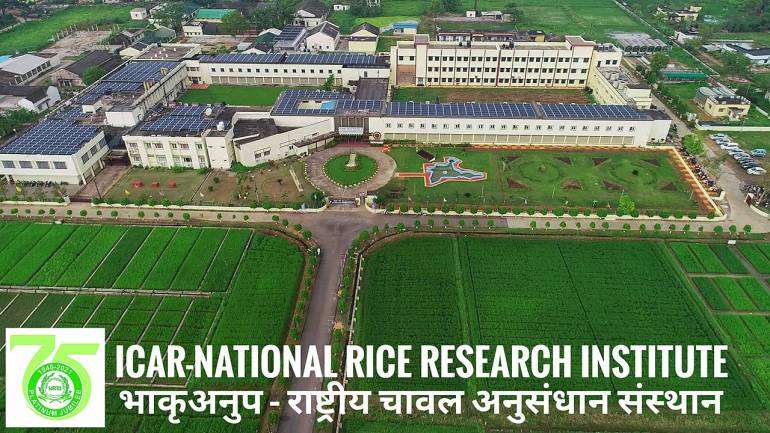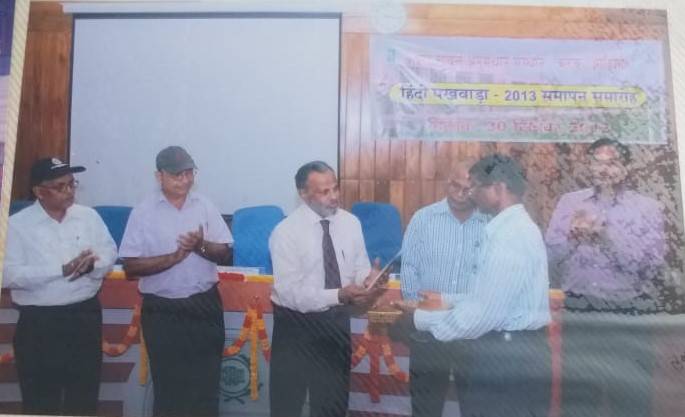A lone Christian in a large workplace: Witnessing Christ through simplicity, kindness and understanding

“I was the only Christian among people of other faiths in the workplace,” said Alvinus Kullu, a 63-year-old member of the Oraon tribe, who worked at the National Rice Research Institute (NRRI), Cuttack, in the eastern Indian state of Odisha.
Kullu joined the government service on February 12, 1981, and worked in the clerical department of the Institute (NRRI).
During his 38 years of service, Kullu was able to witness his faith through his simplicity, kindness and understanding. He was able to do it in the most unassuming way.
“I found ways to witness my faith with my superiors and colleagues through my interactions, undertakings and cooperation,” he added. “We are all called to live our Christian faith at home or at work.”
His colleague Niranjan Sahu, a Hindu man, testifies to Alvinus’ Christian example in the workplace:
"Being a Christian, he is not only a follower of Jesus, but he does his duty with full commitment and dedication, which he has learned from Jesus, and he keeps the identity of Jesus.”
Kullu was born on April 21, 1959, in Kandhabolonda, a Catholic village in the Amlikhoman parish in the Sambalpur diocese of Odisha, an eastern Indian state.
His parents are Gabriel and Mariam. He is the fourth of five siblings. He passed Grade 11 in 1975 from New Odisha High School at Gaibira and completed his bachelor’s degree at Kuchinda, Sambalpur, in 1981.
His wife is Rosalia Kiro, and they have two sons: Amit Roshan and Anand Prakash. Both sons are married, have families, and work in different fields.

National Rice Research Institute
National Rice Research Institute (NRRI), an agricultural research and training organization, in Cuttack, Odisha is Asia’s second-largest Rice Research Institute. The first is the International Rice Research Institute (IRRI), with headquarters in Los Baños, Laguna, in the Philippines, and offices in 17 countries. It was established in 1960.
The Indian Rice Research Institute was established in 1966 under the Indian Council of Agricultural Research (ICAR), but it origins can be traced by to the Bengal famine in the 1940s.
Interest on rice crops intensified following the Great Bengal Famine of 1943, caused partly due to the outbreak of brown spot disease of rice in 1942 and partly due to the shipping of available rice to England during the second world war.
To promote research on rice crops, on April 23, 1946, a Central for Rice Research Institute (CRRI) was established at Bidyadharpur, Cuttack, Odisha, with an experimental farm land of 60 hectares provided by the Government of Odisha. Dr. K. Ramiah, an eminent rice breeder, was its founder and director.
Subsequently, in 1966, the administrative control of the Institute was transferred to the Indian Council of Agricultural Research (ICAR). In 2015, the institute was renamed the ICAR-National Rice Research Institute (NRRI).
The institute’s scientists have many research results to their credit in various disciplines of rice research.
India has gradually increased its cultivating capacity with the help of NRRI. India had the highest export volume of rice worldwide at 18.75 million tons as of 2021/2022. India accounts for approximately 40% of global rice shipments, exporting to more than 150 countries.
Vietnam was the second-largest rice exporter, with about 6.5 million metric tons of rice exported worldwide in that year. India is one of the leading countries producing rice, with a million metric tons produced annually.
"Farmers come from a block and panchayat (village council) level, and they get awareness, training, and demonstrations for 15 to 20 days for the research at NRRI," Kullu explains.
Farmers return with knowledge of high-yielding varieties of rice suitable for the climate and land in the coastal, northeastern, and western areas of India.

A lone Christian in a large industry
Allvin Kullu was the only Christian alongside the majority of Hindu employees. His Hindu colleagues in his workplace and Hindu neighbors in the official residential area would ask him many questions regarding his Christian faith, religious conversion and foreign missionaries working in India.
"There was often debate and discussion with regards to Christianity," Kullu says. "I had to find ways to clarify their questions and doubts."
Though their arguments were not so hostile, sometimes they were demeaning. "With courage and conviction, I defended my faith and Christianity, which is peace-loving by nature and seeks to promote dialogue, understanding, and fraternity with people of all religions and cultures," he said.
According to him, no matter what the situation, every Christian is to bear Christ in a given context.
"Though I belong to the minority religion of Christianity in India, I defend my faith in Christ and practice my religion without fear or intimidation. In this secular nation of India, the constitution has given me the right to profess, propagate, and practice my religion. "The faith I have chosen is one of conviction, not allurement or monetary assistance," says Kullu, an NRRI's sole Catholic employee.
"My position was to explain to them that they needed to have the correct attitude towards Christians and the faith," he says. "Their doubts and prejudices are to be clarified. That's what I was called to do."

Kullu worked in the clerical department of the Institute. Through his interactions, undertakings and cooperation, Kullu set an excellent example for everyone who came in contact with him.
"Though I was the only Christian among the Hindu majority staff, there was no discrimination in the job sector," asserts Kullu.
Modesty aside, Kullu stood first in the institution's Hindi language competition held annually. He received the first prize in this competition.
Kullu retired from his service in April 2019.
After retiring from the NRRI, he became the secretary of St. Antony of Padua Parish in Nayabajar, Cuttack, a city in Odisha.
Father Xavier Camil Tirkey, the former parish priest of St. Antony of Padua Parish, Nayabazar, Cuttack, praises Kullu for witnessing Christian faith among his non-Christian colleagues at the workplace.
Radio Veritas Asia (RVA), a media platform of the Catholic Church, aims to share Christ. RVA started in 1969 as a continental Catholic radio station to serve Asian countries in their respective local language, thus earning the tag “the Voice of Asian Christianity.” Responding to the emerging context, RVA embraced media platforms to connect with the global Asian audience via its 21 language websites and various social media platforms.














